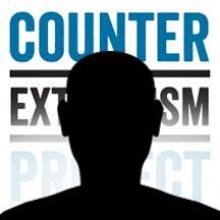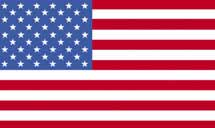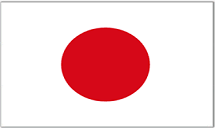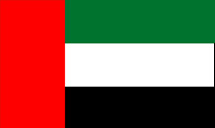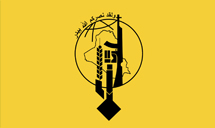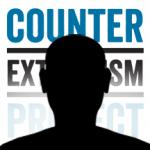Executive Summary:
Kata’ib Hezbollah (KH) is an Iranian-sponsored, anti-American Shiite militia operating in Iraq with ancillary operations throughout Syria. During the U.S.-led war in Iraq that began in 2003, KH earned a reputation for planting deadly roadside bombs and using improvised rocket-assisted mortars (IRAMs) to attack U.S. and coalition forces. According to U.S. diplomat Ali Khedery, KH is responsible for “some of the most lethal attacks against U.S. and coalition forces throughout the [U.S.-led war in Iraq].” The group’s deceased leader, Jamal Jaafar Ibrahimi—also known by his alias Abu Mahdi al-Mohandes—was the alleged mastermind behind the U.S. and French embassy bombings in Kuwait in 1983 and the assassination attempt on Kuwait’s emir in 1985. The group is suspected of involvement in extrajudicial killings and abductions in Iraq’s Anbar province, including the May 27, 2016, abduction of more than 70 Sunni boys and men from al-Sijir, and the murder of 49 men from Saqlawiyah. The group has gained exclusive control over the Jurf as-Sakr area west of Baghdad where it prevents displaced Sunni residents from returning and operates private prisons. In August 2019, Washington Institute for Near East Policy fellow Michael Knights assessed that KH posed the greatest threat to U.S. interests in the country.
KH’s Ibrahimi was killed in a January 3, 2020, U.S. drone strike in Iraq. The strike also Qasem Soleimani, the head of the Quds Force of Iran’s Islamic Revolutionary Guard Corps (IRGC). KH joined with other Iran-backed Iraqi militias in calling for revenge against the United States. KH security official Abu Ali al-Askari called for renewed suicide attacks. Askari also threatened to cut off the flow of oil from Iraq and attack U.S. military bases in Iraq if the United States follows through on a threat by U.S. President Donald Trump to impose sanctions on the country. Following continued attacks by KH on U.S. interests in March 2020, U.S. defense officials reportedly ordered military commanders in Iraq to draw up plans to destroy KH.
After the U.S. military withdrawal from Iraq in December 2011, KH sent fighters to defend the Assad regime in Syria, allegedly at the behest of Soleimani. As KH switched from fighting U.S. forces in Iraq to combating Sunni rebels and extremists in Iraq and Syria, KH has continued to prioritize its anti-American agenda, repeatedly boycotting battles against ISIS in which the U.S. participates.
In January 2018, KH, Asaib Ahl al-Haq (AAH), and the Badr Organization joined with other Shiite units to form the Fatah Alliance political party ahead of Iraq’s May 2018 elections. The alliance won 47 parliamentary seats in the election, though the parliament soon after called for a manual recount. Notwithstanding, on June 11, the Fatah Alliance formed a coalition agreement with Muqtada al-Sadr’s Sairoon Alliance, which won the Iraq elections. This new coalition potentially places Fatah—and by extension KH—in a position to influence the new Iraq government. On July 13, 2018, Iraqi protesters in the country’s south attacked the political offices of KH and other Iran-backed groups as they called for Iran to withdraw from Iraq.
KH is reportedly the “most secretive” and elite of Iraq’s predominantly Shiite militias. KH has long-standing ties to Iran’s external military branch, the IRGC-Quds Force, as well as to Iran’s proxy in Lebanon, Hezbollah. KH has maintained a presence along the Iraqi-Syrian border since Iranian-backed Syrian and Iraqi militias captured the border town of al-Qaim from ISIS in November 2017.
On July 1, 2019, Iraqi Prime Minister Adil Abdul Mahdi issued a decree ordering the militias of the PMF to choose between full integration into the Iraqi armed forces or disarmament by July 31. If the groups oppose integration, they will be considered outlaws. The prime minister’s decree stated that the PMF factions have to choose between either political or paramilitary activity and if they choose politics, they are not allowed to carry weapons. The decree was an attempt by Abdul Mahdi at gaining influence over the Iran-backed militias, which boast more than 120,000 fighters. Some critics suggested the United States and Saudi Arabia instigated the decree after U.S. officials concluded that drone attacks on Saudi Arabia’s oil pipeline in May 2018 were launched from Iraq, not Yemen, which raised the concerns over the activities of Iran-backed militias in Iraq. U.S. officials want the Iraqi government to do more to rein in Iranian-allied militias that have grown in power since they helped win the war against ISIS, including preventing them from using Iraqi territory as a launchpad for attacks against the American military or its allies. KH slammed Abdul Mahdi’s decree, calling it a regional and international scheme that “would weaken security” and “strengthen the presence and goals of the American enemy, producing another [ISIS].”
According to Mahdi’s decree, all PMF factions must abandon their old names and receive new names in compliance with the regulations of the Iraqi army. The decree forbids political parties and parliamentary blocs from having ties with the PMF. Also, all the headquarters, economic offices, and checkpoints manned by militias are to be shut down. KH has six locations inside Nukhayb adjacent to Saudi territory and still refuses to evacuate Iraq’s international border areas. After U.S. reports of Saudi oil sites being targeted from Iraq, KH considers the decree a Saudi-backed attack as a way to usurp KH’s autonomy. Abdul Mahdi issued a new decree in September 2019 that restructured the PMF’s leadership.
In May 2020, former Iraqi intelligence chief Mustafa al-Kadhimi became Iraq’s transitional prime minister, despite threats of violence from KH if parliament approved him as premier. Upon his ascension to the office, Kadhimi appointed an American-trained general to head the interior ministry, which had previously been staffed by leaders of Iranian militias. Kadhimi also pledged to fight against government corruption, which has helped Iran gain influence in the Iraqi government. Iran-backed militias have also used anti-corruption protests as cover for violent activities, such as KH’s December 2019 attack on the U.S. Embassy in Baghdad. KH again threatened Kadhimi in June 2020 after security forces arrested 14 militants allegedly planning attacks around Iraq. KH members in more than a dozen armed vehicles protested outside Kadhimi’s residence, demanding the release of their compatriots. Following the militants’ release on June 29, the 14 KH members set fire to posters of Kadhimi, as well as U.S. and Israeli flags. KH told Iraqi media that it will never give up its weapons.
Doctrine:
According to the U.S. Department of State, KH is “a radical Shia Islamist group with an anti-Western establishment and jihadist ideology.” The group is virulently anti-American and ideologically loyal to the Iranian regime.
Anti-American: During the U.S.-led war in Iraq, KH built its reputation by targeting U.S. personnel and interests and killing numerous U.S. soldiers in terrorist attacks. Since the U.S. military withdrawal from Iraq in December 2011, KH has retained its anti-American ideology. KH’s website states that the group’s first goal “was and still remains: thwarting the American project in the region, defeat of the occupation, and expelling them from Iraq, broken and humbled…. As for our jihadi pillars, there are four. Firstly, waging jihad against the occupation until the last American is expelled from Iraq.” In KH’s efforts to fight ISIS in Iraq, KH remains opposed to any cooperation with the United States. In September 2014, for example, KH released a statement saying, “We will not fight alongside the American troops under any kind of conditions whatsoever. [Our only contact with Americans will be] if we fight each other.” In March 2015, KH’s military spokesman reaffirmed the group’s anti-American position, saying, “It is not possible for Kataib Hizbollah or any of the resistance factions to be in the same trench as the Americans.” In December 2017, following ISIS’s defeat in Iraq, KH released a statement declaring that “the enemy of humanity, the US, can no longer desecrate Iraqi soil, as the fighters of [KH] will not allow them to do so.”
Pro-Iranian: KH’s loyalty to Iran is key to the group’s ideology. A 2013 RAND Corporation report claims that “Kata’ib Hezbollah, like Lebanese Hezbollah, is used as a tool to ‘export the Islamic revolution’ as practiced in Tehran.” KH openly accepts Iran’s vision of velayat-e faqih (Guardianship of the Jurists), a Khomeinist doctrine that calls for religious oversight of the government. Members of KH swear an oath of loyalty to Iran’s supreme leader, Ayatollah Ali Khamenei, and accept him as their own spiritual leader. KH has increasingly targeted Saudi Arabia, which Iran views as a rival for regional hegemony and has engaged with in a proxy war in Yemen. In May 2019, KH attacked two Saudi oil facilities. In May 2020, KH spokesman Abu Ali al-Askari called for continued “jihad operations” in Saudi Arabia.
Organizational Structure:
KH is considered the most secretive Shiite militia operating in Iraq. Little is known about the group’s structure, aside from the fact that KH was led by Jamal Jaafar Ibrahimi, also known by his nom de guerre Abu Mahdi al-Mohandes. Ibrahimi died in a January 3, 2020, U.S. airstrike in Iraq. In addition to acting as leader of KH, Ibrahimi also served as Iraq’s deputy national security adviser and the deputy commander of the Haashid Shaabi (also called the popular mobilization forces, or PMF), Iraq’s umbrella group of anti-ISIS Shiite militias. The PMF coordinates anti-ISIS military ventures between KH, Asaib Ahl al-Haq (AAH), the Badr Organization, and other predominantly Shiite and Iranian-sponsored militias. KH officially operates as the 45th Brigade of the PMF and controls the 46th Brigade under their affiliate, Saraya al-Difa’ al-Sha’abi.
In addition to carrying out paramilitary activities in Iraq, KH has contributed fighters to pro-Assad forces in Aleppo. Though exact numbers of these fighters are not known, KH had previously claimed in 2015 to have contributed 1,000 fighters to the fight in Aleppo. In 2014, the Foundation for Defense of Democracies estimated the total size of KH to be between 1,000 and 3,000 fighters. However, the U.S. government estimated in 2017 that KH has a total membership of only 400 fighters. As of December 2016, KH maintained an office in the government-held section of Aleppo, decorated with the group's flags and banners. KH fighters are also reported to have joined Harakat al-Nujaba, an AAH offshoot in Aleppo that is allegedly in part responsible for the slaughter of dozens of Syrian civilians. It is unclear if the KH office in Aleppo remained past the government’s full capture of the city, however KH is known to be operating in the southern Syria governorate of Deir Ez Zor as of June 2018.
KH belongs to the Fatah political alliance, which received the second most votes in Iraq’s May 2018 elections and quickly entered talks with the election winners—Muqtada al-Sadr’s Sairoon Alliance. This new coalition potentially places Fatah—and by extension KH—in a position to receive important governing positions in the new Iraq government. However, a Fatah leader named Karim al-Nuri claimed that “The new coalition is in tune with the vision of Iran and the United States,” meaning the party would not seek to change Iraq’s post-2003 policy of working with both Iran and the United States. In June 2020, Fatah Alliance member Fadhil Fatlawi told Iranian media that the Iraqi parliament was committed to expelling U.S. forces from Iraq. Following Iraq’s October 2021 parliamentary elections, the Fatah Alliance won only 14 seats, decreasing from its 48-seat victory in 2018. KH member and former chief of security Hussein Muanis also ran under the banner of the Harakat Huquq party, winning one seat. He was the first member of KH to openly affiliate with the group in elections, leading to reports KH had officially entered Iraqi politics. KH and Huquq denied any affiliation between the two entities.
Beginning in 2019, new Iran-backed militias appeared to emerge and claim responsibility for attacks against U.S. interests in Iraq. Foreign policy and media analysts in Iraq and the United States questioned the validity of claims from these groups based on suspicions they were recycling old video footage and claiming attacks without evidence. One of the groups to emerge during this time was Ashab al-Kahf (“Companions of the Cave,” AK), reportedly a subgroup of KH that first issued a threat against U.S. forces in April 2020. The group claimed responsibility for an attack on a military convoy in July 2020 in the Salaheddin province. AK also claimed responsibility for an August 11 bombing of a U.S. convoy along the Iraqi-Kuwaiti border, but Iraqi, Kuwaiti, and U.S. sources denied the incident took place. Following the July attack, Iranian media reported that U.S. forces had no choice but to withdraw from Iraq. AK initially claimed responsibility for a barrage of rockets targeting the U.S. Embassy on November 17, 2020. However, KH and the Fatah Coalition issued a statement denying any responsibility or connection between the rocket attack and Shiite militias after it became public that the rockets had killed an Iraqi child. AK has also been linked to AAH, declaring in December 2020 it would unleash street violence if AAH ordered it. AK has denied it has ties to KH, AAH, or any other militias. In an August 1, 2022, statement, AK accused NATO, the United States, and the United Kingdom of enflaming stoking political tensions in Iraq and threatened to attack their embassies and military bases in Iraq and around the Middle East.
KH has used other such façade groups to claim responsibility for attacks without directly implicating itself. Qasem al-Jabbarin has claimed roadside bombings targeting Iraqi supply trucks servicing the U.S. military. The group first came to light in 2020 with a September 17 announcement of an attack on a U.S. convoy. Other suspected façade groups linked to KH include Alwiyat al-Waad al-Haq, Raba Allah, and Usbat al-Thaireen. Another front group, Liwa Thar Muhandis (LTM) (“Revenge of Muhandis Brigade”), emerged in 2020 with claims of rocket attacks on U.S. forces on May 6 that year at Baghdad’s airport and an April 17 missile attack on U.S. helicopters. While the group has been suspected of links to both KH and AAH, some analysts suspect it has no capabilities for actual attacks and is used only to claim attacks.
KH has also mobilized online groups. Unit 10,000 specializes in the publication of propaganda and developing online followers for hacking and collecting open-source intelligence. Another electronic façade group, Fatemiyoun Electronic Squad, formed in January 2020 to carry out cyberattacks on behalf of KH by hacking websites and social media accounts and disrupting oppositional social media accounts by mass reporting community violations.
Islamic Resistance in Iraq
Following the onset of the Hamas-Israel war in the Gaza Strip in early October 2023, an umbrella group called the Islamic Resistance in Iraq (IRI), claimed responsibility for an October 17 failed drone strike on a U.S. air base in Irbil, Iraq. The IRI is reportedly a coalition of all Iran-backed Shiite militias operating in Iraq, including KH, Kataib Sayyid al-Shuhada, Asaib Ahl al-Haq (AAH), and Harakat Hezbollah al-Nujaba (HHN), as well as lesser-known militias, such as Tashkil al-Waritheen. The IRI targets U.S. elements across Iraq and Syria in retaliation for the United State’s perceived role in the Gaza war. The IRI carried out at least 20 more attacks by the end of October. By January 2024, the IRI had carried out more than 100 attacks against U.S. targets in Iraq and Syria.
Financing:
According to the U.S. government, KH is primarily funded by the government of Iran and, specifically, Iran’s IRGC-Quds Force. In November 2014, wounded U.S. military veterans and family members of deceased U.S. soldiers filed a lawsuit against European banks for processing money from Tehran that bankrolled terrorist attacks in Iraq. According to the lawsuit, KH allegedly received money from Iran to finance terrorist attacks against U.S. soldiers. Syrians who fight in KH’s Syrian branch also receive their salaries directly from Iran.
KH has also reportedly secured funding through kidnap-and-ransom operations, reportedly taking hostage more than two dozen people in December 2015, including Qatari royals, and releasing the hostages more than a year later in exchange for a large payout. In April 2017, Qatari officials arrived in Baghdad carrying a bag with “millions of dollars” in ransom money, destined for KH and other Islamist groups, including Hayat Tahrir al-Sham, an umbrella group that includes the al-Qaeda-affiliated Nusra Front. Documents released in April 2018 revealed that the Qatari officials had paid $25 million of a $150 million ransom to KH in 2017.
KH and fellow PMF unit Liwa al-Tafuf have also taken charge of all PMF activity in western Anbar. Together, the two groups control smuggling and commerce across the Iraq-Syrian border, particularly around the al-Qaim-Abukamal crossing, providing a further source of income for the organizations.
Recruitment:
KH has sought to lure recruits by advertising its fight against U.S. forces in Iraq. Following the start of the Syrian civil war, the group also advertised its efforts to support Assad forces in neighboring Syria.
During the U.S.-led war in Iraq, KH filmed attacks against U.S. and coalition targets, publishing the films online for propaganda and recruitment purposes. During the Arab Spring, KH and fellow Shiite militia Asaib Ahl al-Haq (AAH) also attempted to attract recruits to fight anti-Assad rebels in Syria by advertising their involvement there. They did so by holding public funerals for fighters in Shiite neighbors in Baghdad, and by posting updates on the groups’ Facebook pages. The two groups also posted phone numbers around Baghdad to attract potential recruits.
KH launched its own website in 2015, but the site had been deleted as of June 2020. KH has also developed a digital propaganda team that reportedly included 400 people as of June 2020. An investigation by the British Telegraph newspaper that month found that KH digital propagandists were flooding Facebook with fake accounts and promoted fake news stories to boost its own standing. According to the Telegraph report, Facebook has received millions of dollars in advertising revenue from KH and other Iraqi electronic armies promoting fake news stories on the platform.
KH has formed multiple front groups to recruit Iraqi youth. Created in 2012, the Imam Hussein Scout Association is KH’s youth organization and is also affiliated with Lebanese Hezbollah's Kishaf al-Imam al-Mahdi (Mahdi Scouts) youth movement. While the scouts provide sports activities, community service, and social activities for youth, they also indoctrinate children to political Islam, specifically KH ideology. KH iconography is visible in scouting videos while scouts have reportedly praised KH and its members. Another KH-linked group targeting Iraqi youth is Sharia Youth Gathering. Like the Imam Hussein Scouts, Sharia Youth Gathering provides sports and social services while indoctrinating youth to KH ideology. The leadership of both groups is allegedly made up of KH members.
Training:
KH members have received training from Iran’s external military wing, the Quds Force, as well as from Lebanese Hezbollah, another Iranian proxy. By 2008, the Quds Force and Lebanese Hezbollah were running training camps in four locations in Iran (Tehran, Qom, Ahvaz, and Mashhad). There, KH and Iran’s other Shiite militias were trained on the use of small arms and explosives. Lebanese Hezbollah also ran training camps in southern Iraq until the group was forced to relocate the camps to Iran in April 2008. By 2010, training camps in Iran continued to provide KH with training related to small arms, surveillance, small unit tactics, and communications. By November 2013, KH members were reportedly being trained in either Iran or Lebanon and then flown to Syria to fight alongside Assad regime forces. By 2015, some KH members were receiving military training at a base near the city of Samarra in northern Iraq. KH has developed especially close ties with Unit 3800, the Lebanese Hezbollah wing devoted to arming and training Iraqi Shiite militias. In June 2015, the group allegedly helped train Bahraini militants.
Also Known As:
- Battalions of Hezbollah
- Battalions of the Party of God
- Brigades of the Party of God
- Hezbollah Brigades
- Hizballah Brigades
- Hizballah Brigades in Iraq
- Hizballah Brigades–Iraq
- Hizballah Brigades–Iraq of the Islamic Resistance in Iraq
- Islamic Resistance in Iraq
- Kataib Hizb Allah
- Kataib Hizbollah
|
- Kata’ib Hezbollah
- Kata’ib Hizballah
- Kata’ib Hizballah fi al-Iraq
- Kataib Hizbullah
- Katibat Abu Fathel Al A’abas
- Katibat Zayd Ebin Ali
- Katibut Karbalah
- Khata’ib Hezbollah
- Khata’ib Hizballah
- Khattab Hezballah
|












